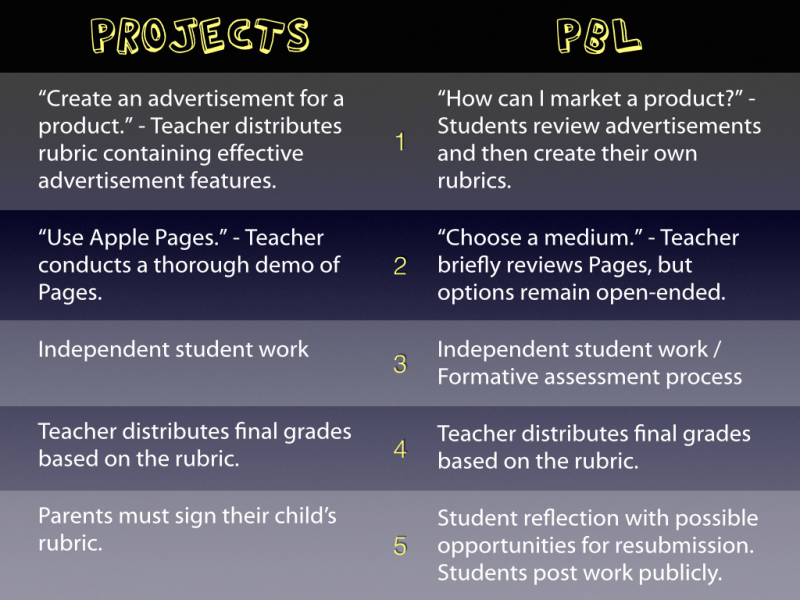Here are the 6 stages of personal technology integration, which I devised based on my experiences as a teacher and administrator. The “lowest” step starts with educator unwillingness to use technology, while the “highest” involves being able to leverage these tools to promote inquiry-based learning (through project-based learning, 20% Time, etc.).
These stages were part of a keynote presentation I did last week for a school district in New York. During the presentation I also emphasized:
- How technology “fades away” at the greatest levels of use because it is leveraged to enhance effective pedagogy, not replace it. (For more on how this shift can be accomplished, see “Project-Based Learning: The Easiest Way to Get Started.”)
- Educators should be aware (“technologically self-aware”) of (1) where they fall on this spectrum, and (2) what needs to be done in order for them to climb the ladder (by visiting each other’s classrooms, taking more risks, getting support from administrators, etc.).
Technical/Research jargon has been omitted from the 6 stages to make them understandable at the surface level with minimal explanation. Most importantly, educators should be able to easily identify with the different steps/quotes as a result of the various on the job experiences they have had throughout their careers.
What are your overall thoughts on the 6 stages? Did I hit the nail on the head or did I leave something out? How could you see yourself leveraging this model during professional development?
Connect with Ross on Twitter.









